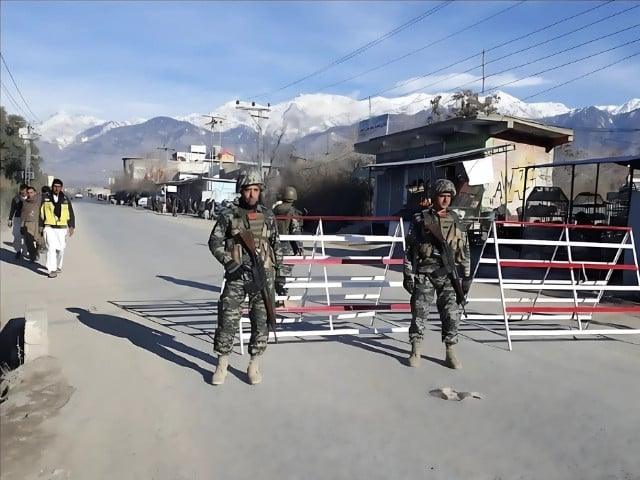A peace agreement was reached during a grand jirga (tribal assembly) convened to address the current situation in Kurram district of Khyber-Pakhtunkhwa province.
The meeting, held in Kohat, concluded with the signing of a peace agreement by both sides, marking a crucial step towards restoring stability in Kurram, Express News reported.
Under the terms of the agreement, both factions agreed to deliver heavy weapons to the government.
The Kohat Commissioner is expected to make the final decision and official announcement of the agreement today.
The signing of the peace agreement had previously been delayed due to incomplete participation by jirga members. However, both sides have agreed on several key points of the agreement, paving the way for peace in the region.
At yesterday’s Jirga, chaired by Kohat Commissioner Mutassim Baullah and held at Kohat Fort, several points were discussed.
The administration has stated that until the heavy weapons are removed, opening the roads remains a major risk. Helicopter services are underway across the district, with medicines and other supplies being delivered to Kurram via helicopters.
Meanwhile, protests against road closure in Kurram district began spreading to other parts of the country and the sit-in in Parachinar entered its sixth day. Road blockades continue in the Kurram tribal district, including Parachinar.
In Parachinar itself, the sit-in on the main Kachehri road, in front of the Press Club, has entered its sixth day.
Philanthropist Faisal Edhi has urged the government to take appropriate measures to resolve the crisis in Kurram district, warning that it may lead to unrest across the country.
He made this statement while addressing members of the Human Rights Commission of Pakistan (HRCP) at the HRCP office in Karachi on Friday.
Faisal expressed concern over the seriousness of the situation and said that if proper records were kept, it would reveal that more than a hundred children have already died due to the ongoing conflict.
He stressed that the situation is serious, with no medications available for patients with cancer or brain hemorrhage.
He noted that there is also a serious shortage of oxygen and insulin, even in private hospitals, and medical procedures and operations have been suspended since the conflict began.
Meanwhile, in Karachi, the traffic police failed to ensure quick flow of traffic despite the religious party’s earlier announcement of sit-in protests. There was total chaos throughout the city, as traffic jams were observed on the main arteries and link roads.
Long queues of vehicles formed on important roads including Sharea Faisal and MA Jinnah Road. Citizens faced difficulties reaching their destinations.
A sit-in was carried out on both roads of Sharea Faisal Kala Chapra, Main National Highway, Malir 15 Bridge of Quaidabad, Abbas Town and on both roads of University Road. Passengers heading to the airport also faced extreme difficulties.
Addressing a press conference at Numaish Chowrangi, Majlis-e-Wahdat-e-Muslimeen central leader Allama Hassan Zafer Naqvi said that our protest is to express solidarity with the people of Parachinar.




